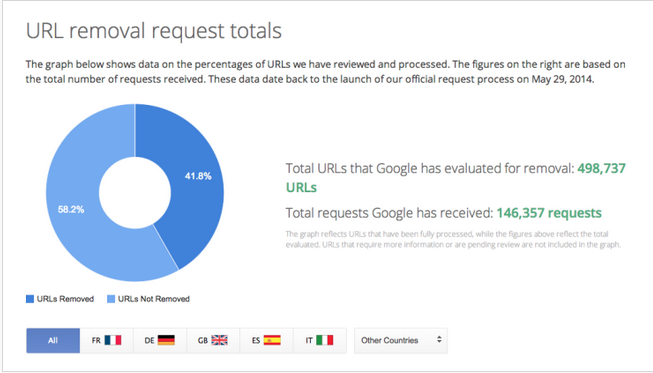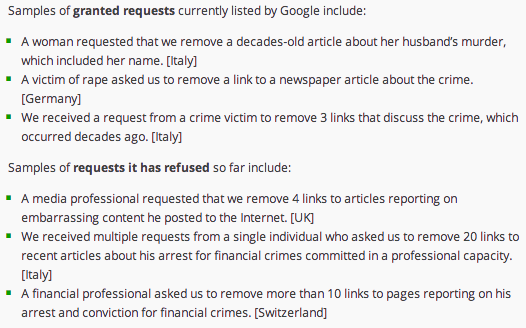Europe’s Attempt to Change Google’s Search
Google is currently getting thousands of requests from Europeans asking to remove “humiliating links to their past” from appearing on Google’s search function. These demands starting coming about 5 months ago – in May 2014, a European Union court that ruled some embarrassing information about people’s lives can be scrubbed or removed from search results. This topic relates to Networks, Crowds, & Markets because the court ruling is now affecting how Google decides to make its search function work.
Since the European Union’s ruling, Google – the world’s dominant search engine – has received over 145,000 requests from people living in the European Union’s 28 countries (having a population of over 500 million people). The removal requests have put more than 497,000 Web links into questioning. Google says it has removed about 42%, or more than 200,000, of the “troublesome” and “humiliating” links. These numbers are shown in the graph below:

http://techcrunch.com/2014/10/12/google-adds-european-search-de-listing-requests-to-its-transparency-report/
But here comes the big question that Google faces: what kind of requests merit deletion? The answer is not so simple because one of Google’s main beliefs is that all of the world’s information should be universally accessible. This relates back to the material in class because Google now has to redetermine what pages come up in a Google search. Google’s search experts decided that its main goal is to preserve information in the public interest (such as articles about crime).
An article on TechCrunch entitled “Google Adds European Search De-Listing Requests to Its Transparency Report” gave several examples on requests Google approved or denied, shown below:

http://techcrunch.com/2014/10/12/google-adds-european-search-de-listing-requests-to-its-transparency-report/
The whole situation caused from the European Union’s court ruling shows the complexity of Google’s search engine, as we have talked about in class.
Sources:
http://www.cio-today.com/article/index.php?story_id=032002XW71GG
Google Adds European Search De-Listing Requests To Its Transparency Report
